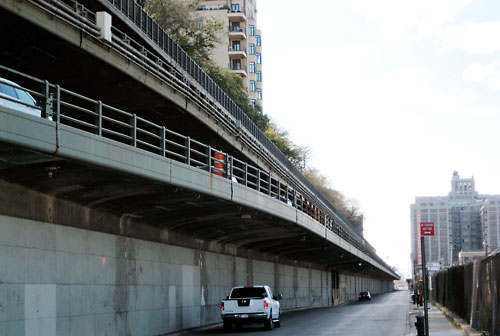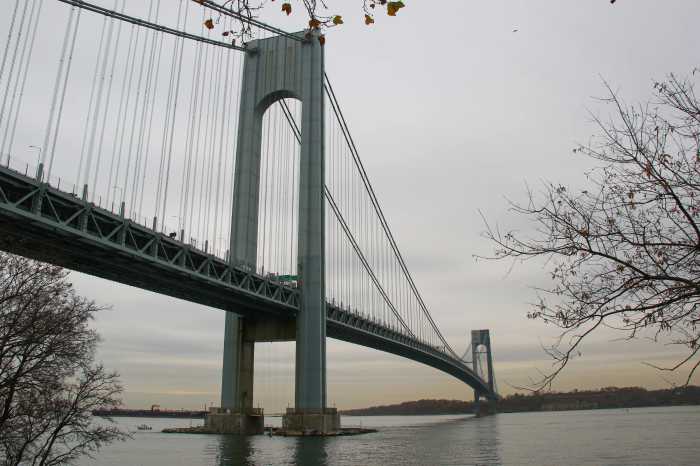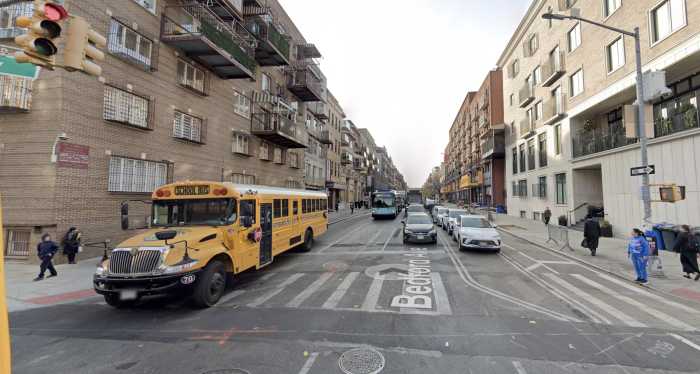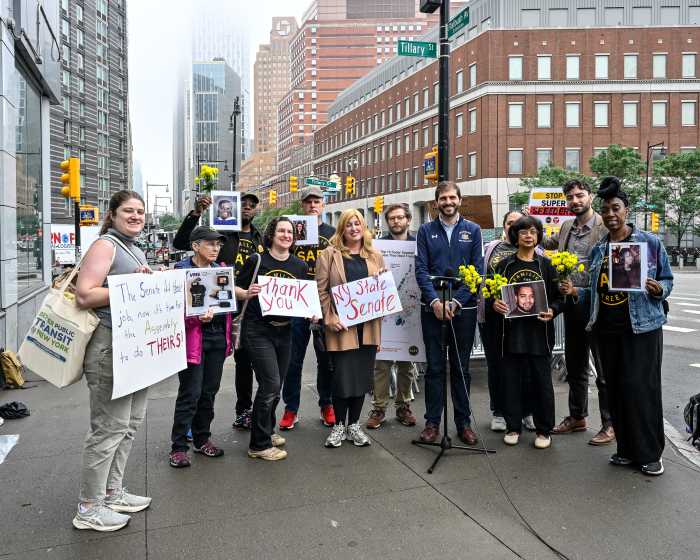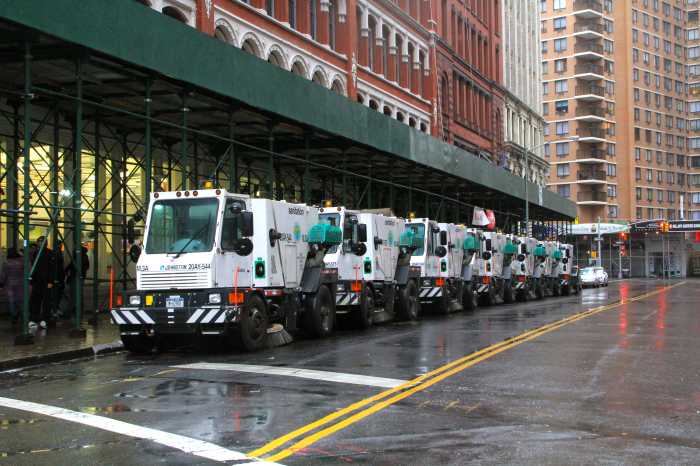State officials revealed on Tuesday night that a colossal renovation of the Brooklyn-Queens Expressway won’t likely begin until 2020 — nearly 30 years beyond the roadway’s original lifespan.
The shocking announcement came as the state Department of Transportation told Community Board 2 that repairs to the deteriorating 1-1/2-mile triple cantilever stretch under the Brooklyn Heights Promenade wouldn’t start until 2020, two years after the 2018 launch it announced last fall.
That part of the roadway was built in 1949 to last just 40 years — though Peter King, the state director of the BQE project, said it is still “safe.”
Later, he said that the road still has a “10- to 15-year window” before it declines steeply.
But 2020 — the shaky new start date for the reconstruction — is 11 years away.
Locals seemed nervous about any delays on fixing the decrepit roadway.
“How did we lose two years?” John Dew, chairman of Community Board 2, asked at the meeting.
Officials explained the delay simply: the project to rebuild the highway between Sands Street and Atlantic Avenue is awfully complex.
The roadway includes 21 bridges, crosses five subway tunnels, wraps around densely populated neighborhoods, abuts the proposed Brooklyn Bridge Park and carries 140,000 vehicles a day. As such, it’s impossible to pinpoint a start date at this time.
“Hopefully, we didn’t lose two years,” said King. “It’s very difficult to be exact.”
He cited the “smooth” 10-year planning process to rebuild the Kosciuszko Bridge in Greenpoint as an example of the endurance required in monumental infrastructure projects.
Referencing Winston Churchill, King said: “We may be at the end of the beginning.”
Besides simply replacing the failing interstate, King told the audience at NYU-Polytechnic Institute in Downtown that the project would try to improve some of the glaring problems motorists have experienced for years, like:
• narrow lanes.
• no shoulder.
• near constant traffic.
• a high accident rate.
It’s too soon to estimate the project’s cost, but the federal government and state would shoulder the astronomical price tag. Under existing arrangements, Washington provides 80 percent of the funding and the state ponies up 20 percent.
Another public session is scheduled for June 22, when the public can voice its concerns or make suggestions about rebuilding the BQE to the state.
Brooklyn Heights residents will no doubt share fears that BQE traffic will be diverted through their residential neighborhood when the repairs finally get underway. And planners of Brooklyn Bridge Park, who say their project will be mostly built by 2020, will want to protect their property from a detour, too.
The state Department of Transportation scoping hearing will be June 22 at NYU-Polytechnic Institute [5 Metrotech Center, corner of Jay Street and Myrtle Avenue in Downtown Brooklyn, (718) 482-4526], time is to be determined.


